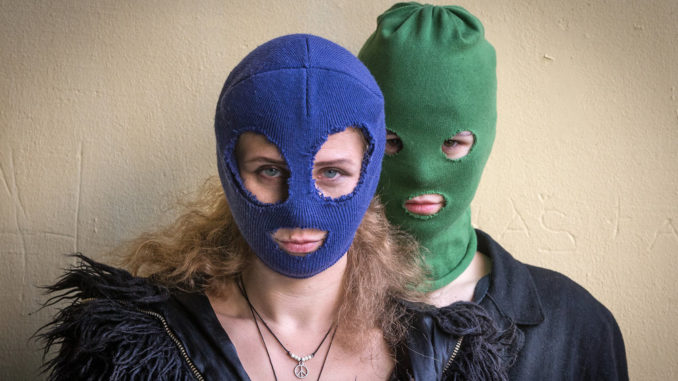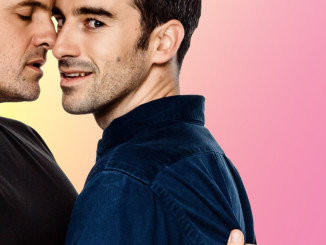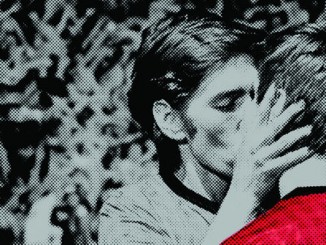
[The Revolution will be Theatricalised]
I was standing in the Auckland Town Hall’s Great Hall on a Friday night waiting for Riot Days to start, a performance by the Russian protest and art collective Pussy Riot. As I wait, I get chatting to Rita, an 86-year-young from Tauranga who has travelled up to Auckland for the event. Rita had read the book ‘Riot Days’ (Metropolitan Books, 2017) by Maria ‘Masha’ Alyokhina which chronicles the collective’s protest actions that led to three members of the group being arrested and Masha spending two years in a Russian prison. Rita booked two tickets online and phoned her middle-aged daughter to say she was driving up to Auckland for the show. Her daughter hadn’t heard of the group and was surprised her Mum was so keen to drag her to a punk rock concert.
Just before the performance begins, producer Alexander Cheparukhin takes to the stage to talk to the diverse Auckland crowd. Rita is not the only senior citizen in attendance, and there are a mixture of ages, ethnicities, and sub-cultures present including metal heads, goths, hipsters, dykes, as well as a group of women wearing fake beards. The mixed crowd have been drawn together to support the anti-authoritarian and anti-patriarchal politics of Pussy Riot and the political courage and commitment of its founders. Cheprukhin gives a short address, giving some context and explaining the whakapapa or genealogy of the group and the performance we are about to see. He notes that Pussy Riot was never a punk rock band but a collective of artists and activists. The early protest actions that the group were involved in 2011 and 2012 included members of the collective who had particular interests in Punk music, and it was the popularisation of these documented events online that made the group synonymous with the music genre.
Pussy Riot: Riot Days is directed by Yury Muravitsky and includes abridged segments of text from Masha’s book as well as documentary footage of the group’s various protests, court case and media notoriety. The contemporary documentary performance features five performers, three of whom are original founding members of the collective. These include Maria ‘Masha’ Alyokhina as the lead narrator of events, accompanied by Nadezhda ‘AWOT’ Tolokonnikova on Saxophone, and Kot who is an electronic musician on keyboards. They are joined onstage by two male members of the group: trumpet player Oleg Larionov, and Kyril Masheka, an actor formerly from the Belarus Free Theatre and the only non-Russian who performs as a front man with his leather jacket, ripped abs, muscled chest and bald head.
The performance begins with music, not the heavy thrashing of Punk rock guitar that some might have expected, but with electronic pulses, industrial sounds and bass rhythms that continue almost non-stop through the almost two-hour performance, building into a hypnotic driving tempo interspersed with sax, trumpet and loud singing, all of which underpin and uphold the spoken word narration. The narration is continuous, often spoken by Masha, with key phrases echoed by other members on stage, at times fracturing into dialogue with Kyril Masheka often intoning lines of authoritarian figures like lawyers, security or prison guards.
The performance provides a background to Pussy Riot’s protests, beginning with the group’s understanding that in this media saturated world we now live in ‘revolution requires a big screen’. The performance narrates how the collective was founded in the run-up to President Putin’s bid for another term in office which was sanctioned by the Russian Church in defiance of the country’s secular constitution. We hear the motivations behind forming the collective, the clamping down on political activists by the state, and the decision by the group to use coloured caps to create face-masks to protect the anonymity of its members but also to help encourage civic participation and anger: ‘Anyone can be Pussy Riot’ we are told. Accompanied by documentary footage of various protest actions, as well as ‘behind the scenes’ footage of the members rehearsing and organising, the subtitled performance narrates the events in 2012 when three members, Masha, Nadezhda and Yekaterina Samutsevich were arrested following their performance inside Moscow’s Cathedral of Christ the Saviour. The production follows the trial that ensues and Masha’s subsequent imprisonment and how she became an activist for other political prisoners in Russian jails.
The focus on the issue of political prisoners becomes a kind of climax of the performance with the names and images of numerous prisoners reeled off in quick succession, hammering home the urgency to be concerned and take action. According to the leading Russian human rights organisation Memorial, there are 155 political and religious prisoners held in Russian prisons including Oleg Sentsov a Crimean filmmaker, the historian Yuri Dmitriev, and Oyub Titiev – the head of Memorial’s Chechnya office. When the performance ends Masha takes to the stage to encourage audiences to buy a t-shirt from the merchandise table, explaining that the proceeds will go to supporting Russian political prisoners and their families.
Riot Days is contemporary documentary performance that embodies the various meanings of ‘riot’ in the production’s title, becoming an expression of anger, a violent outburst of expression, and uncontrolled revelry and abandon. But the performance manages to achieve all this through a superbly crafted and directed production that narrates the group’s various protest actions and provides an insider’s account of the group’s aims and methods – operating as a kind of theatricalised manual for guerrilla performance.
One of the best lines in the performance comes after Masha narrates the group’s early protest in Revolution Square. Escaping the confused security guards the members of the group explained that they were ‘drama students’ – emphasising the seemingly innocuous aspects of theatre as an intellectual and immature pursuit. Yet as Riot Days demonstrates, theatre and performance can be powerful and inspiring, helping to galvanise people who share political commitments. In undergraduate theatre courses Political Agit-Prop, or agitational propaganda, is often described as a fairly dross unimaginative form of theatre that emerged in Soviet Russia in the mid 1930s. It is usually critiqued as a form of performance that is overly didactic and involves shouting political messages at an audience in the hope, they will join a cause. Pussy Riot: Riot Days is reinvigorated agit-prop, presenting a mode of performance that emboldens civic anger. As we deal with the rise in strong-man politics and the Trumps and Putins of this world, and as we steer a course through the impact of toxic masculinity in this country, perhaps more than ever we need forms of art that help us channel our anger and build a sense of political commitment and solidarity. The revolution might not be televised, but as Pussy Riot: Riot Days shows, it might be theatricalised – so make sure you get along to the stage to experience it and participate.
Pussy Riot: Riot Days was presented by Auckland Live as part of the Auckland Fringe Festival. Friday 22 February, Great Hall, Auckland Town Hall.
The show also appears as part of the the New Zealand Fringe Festival in Wellington, 12 March 2019.




Leave a Reply